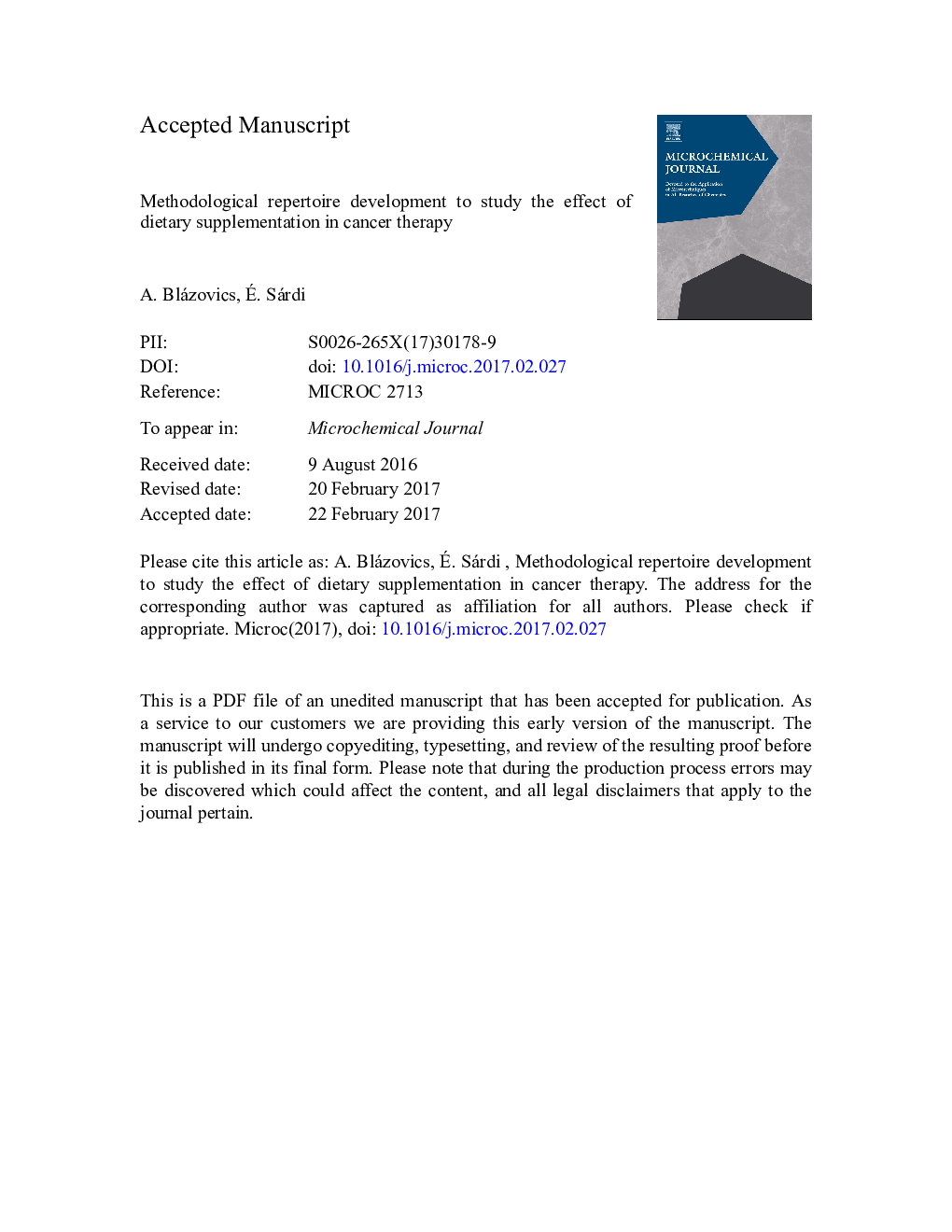| Article ID | Journal | Published Year | Pages | File Type |
|---|---|---|---|---|
| 5138957 | Microchemical Journal | 2018 | 17 Pages |
Abstract
Diet-related bioactive compounds are intensively examined in vitro, although the in vivo and in vitro effects are different, and the mode of actions in in vivo is not yet known in detail. Metals are also important both in the free radical formation and in the antioxidant defence as well as in signal transduction. It is a proven fact that methylation agents have an important role in preventing cancer and improve redox homeostasis. The root of Beta vulgaris L. ssp. esculenta var. rubra (table beet) as a functional food has been used for centuries as a traditional and popular food in many national dishes. Since several bioactive agents e.g. betaine, betanins, betacyanins, betaxanthins, vulgaxanthine, polyphenols, flavonoids, vitamins (thiamine, riboflavine, piridoxine, ascorbic acid, biotin and folic acid) as well as soluble fibre, pectin and different metal elements (e.g. Al, B, Ba, Ca, Cu, Fe, K, Mg, Mn, Na, Zn) can be found in large quantities in vegetable table beet, therefore a relative simple methodological repertoire to interpret the impact of variety of active substances on the vital function of the metastatic cancerous patients is needed to be developed. It is also required to examine in addition to routine laboratory parameters, values of HbA1c, 9 cytokines and levels of 3 growth factors, the global parameter of redox-homeostasis, few metal elements and levels of free and Zn-protoporphyrins as well as transmethylation, since low transmethylation ability, high free protoporphyrin and Zn-protoporphyrin concentrations and high induced free radical levels of erythrocytes are very important indexes in cancer.
Keywords
HCHOPDGFHbA1cAP-1p38RLUMCP-1HIF-1PSANFATJnkNF-κBEGFCOXdeoxy-ribonucleic acidTransmethylationc-Jun N-terminal kinaseDNAIfngcyclooxygenaseEryinterferon-gammainterleukinstumour necrosis factor-alphaSODSuperoxide dismutaseepidermal growth factorHypoxia induced factorVascular endothelial growth factorVascular Endothelial Growth Factor (VEGF)platelet-derived growth factorTNF-αnuclear factor-κBFormaldehydeglycated haemoglobinRedox homeostasisrelative light unitprostate-specific antigenmonocyte chemoattractant protein-1C reactive proteinCRPmitogen-activated protein kinaseanaemiaErythrocyte
Related Topics
Physical Sciences and Engineering
Chemistry
Analytical Chemistry
Authors
A. Blázovics, Ã. Sárdi,
